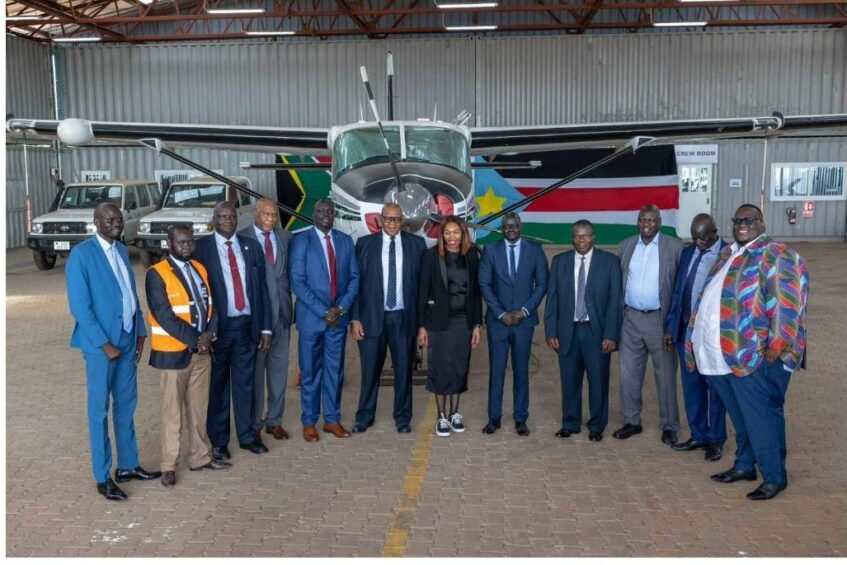A bank official has urged the need to avail planes that were purchased by Ministry of Petroleum last year to help spray crop pests in Upper Nile State.
Betty Achan who is the deputy head of the Board of Directors of the Agriculture Bank of South Sudan directed the request to the Ministries of Petroleum and Agriculture.
Speaking during a visit to Malakal on Friday, Achan said they found out that the ministry of petroleum purchased some planes.
She did not specify the number of the planes and their intended purposes.
However, in June 2023, the Petroleum Minister Puot Kang Chol confirmed the purchase of two geophysics airplane to conduct aerial surveys of the country’s mineral resources.
Achan suggested the need for the institutions to cooperate and use the planes to combating agricultural pests in Upper Nile state.
“I will take the message seriously to the Minister of Agriculture, and we see how we could work together.
“Actually before we came, we had a discussion at a different level and we found out that the Ministry of Petroleum purchased some planes. So why don’t we coordinate with them, so that we use those planes to spray the birds?
“We came to the field and listened to the farmers. We saw this problem could be solved. There is problem that cannot be solved.”
Over the years, farmers in Upper Nile have repeatedly called on the National Government and NGOs to help them with agricultural inputs and spray their crops with pesticides.
But the calls were not heeded to.
On his part, the Governor of Upper Nile State, James Odhok Oyay hopes that the national government will intervene and support the farmers.
“All the 13 counties of the state are considered suitable for agriculture. I hope that their next report will include a plan to support farmers in Upper Nile State to ensure better agricultural production than last year’s.”
“Because the last agricultural season was successful due to farmers’ initiatives and reliance on their crops. But in this session, we want the government to intervene and provide support to farmers.

